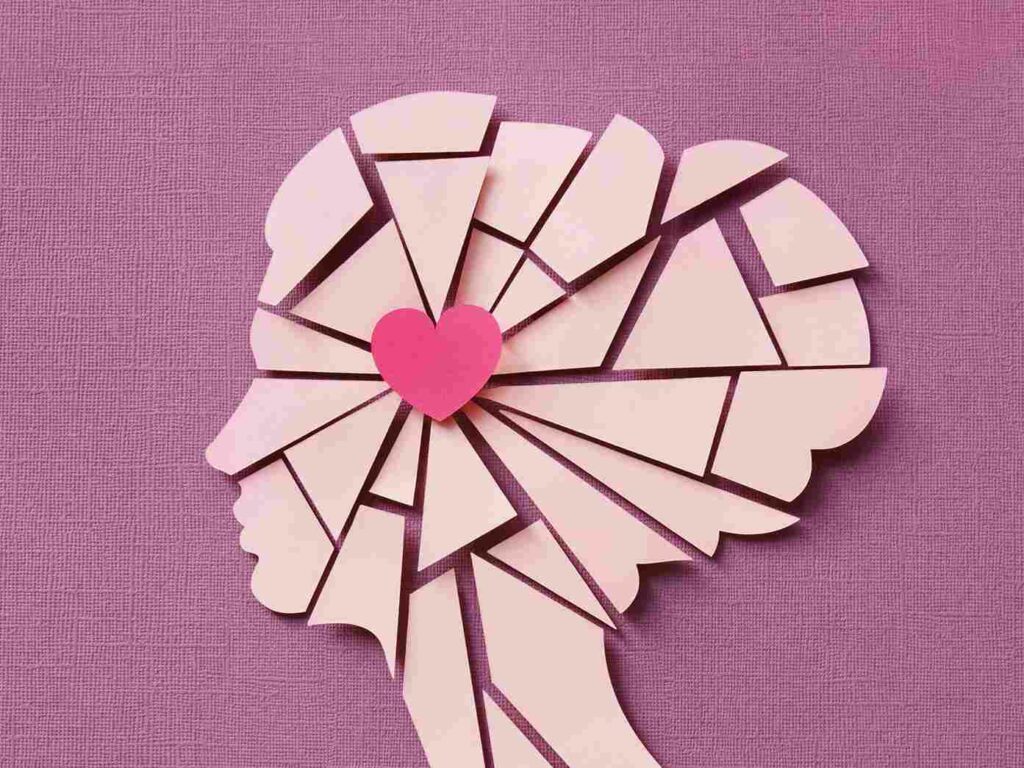Breakups are an inevitable part of many romantic relationships, and they can be incredibly challenging and emotionally draining. Whether you initiated the breakup or you were on the receiving end, it is normal to feel a range of emotions such as sadness, anger, and confusion. However, there are ways to help you cope with the aftermath of a breakup. And here therapy for breakups can be a valuable tool in the healing process.
Contents
Does Therapy Help With Breakups?
 Yes, therapy can be very helpful for individuals experiencing a breakup. Going through a breakup can be a difficult and painful experience that can cause a range of emotions. Such as sadness, anger, and confusion. Therapy can provide a safe and supportive environment for individuals to process and work through their emotions, gain clarity and closure, and develop healthy coping mechanisms.
Yes, therapy can be very helpful for individuals experiencing a breakup. Going through a breakup can be a difficult and painful experience that can cause a range of emotions. Such as sadness, anger, and confusion. Therapy can provide a safe and supportive environment for individuals to process and work through their emotions, gain clarity and closure, and develop healthy coping mechanisms.
Therapy can also help individuals identify patterns in past relationships, address any underlying mental health concerns, and learn to communicate and set boundaries in future relationships. Additionally, this can provide individuals with the tools and support they need to move forward and create a positive outlook on the future. Overall, therapy can be a valuable tool in the healing process after a breakup.
What Are Some Best Therapy For Breakups?
There are various types of therapy that can be helpful for individuals experiencing a breakup. Here are 7 types of therapy that may be particularly useful:
Cognitive Behavioral Therapy (CBT)
CBT is a type of therapy that focuses on identifying and changing negative thought patterns and behaviors. In the context of a breakup, CBT can help individuals challenge unhelpful thoughts and develop more realistic and adaptive ways of thinking about their situation. These techniques may include:
- keeping a thought record, where individuals track and challenge their negative thoughts.
- behavioral activation, where individuals set and achieve small, achievable goals to improve their mood.
Mindfulness-Based Therapy
Mindfulness-based therapies, such as Mindfulness-Based Stress Reduction (MBSR) and Mindfulness-Based Cognitive Therapy (MBCT), focus on developing present-moment awareness and acceptance of one’s thoughts and emotions. In the context of a breakup, mindfulness-based therapy can help individuals learn to approach their emotions with greater self-compassion and acceptance. This therapy may involve mindfulness meditation practices or other mindfulness-based techniques to help individuals manage their thoughts and emotions.
Psychodynamic Therapy
Psychodynamic therapy is a type of therapy that explores how past experiences and unconscious thoughts and emotions may be impacting an individual’s present situation. This therapy may help individuals gain insight into how their early attachment experiences may be impacting their current relationships. It can also help individuals identify patterns in their relationships and work towards changing them.
Interpersonal Therapy (IPT)
Interpersonal Therapy (IPT) is a type of therapy that focuses on improving an individual’s relationships with others. IPT is based on the idea that problems with relationships can contribute to an individual’s psychological distress. In the context of a breakup, IPT can be helpful in addressing issues related to the end of a relationship. Such as difficulty with communication or unresolved feelings towards the ex-partner.
Emotion-Focused Therapy (EFT)
 EFT is a type of therapy that focuses on identifying and working through difficult emotions. It can help individuals process their emotions related to the loss of the relationship and the changes that come with it. The therapist may use techniques such as emotion-focused imagery, where individuals visualize and explore their emotions. Or emotion-focused communication, where individuals learn to express their emotions in a clear and effective way.
EFT is a type of therapy that focuses on identifying and working through difficult emotions. It can help individuals process their emotions related to the loss of the relationship and the changes that come with it. The therapist may use techniques such as emotion-focused imagery, where individuals visualize and explore their emotions. Or emotion-focused communication, where individuals learn to express their emotions in a clear and effective way.
Acceptance and Commitment Therapy (ACT)
ACT is a type of therapy that focuses on developing acceptance of difficult emotions and taking action based on personal values. This can be helpful for individuals experiencing a breakup by helping them develop greater acceptance of their emotions and take steps toward their personal goals.
Group Therapy
Finally, group therapy for breakups involves individuals who have experienced a breakup coming together in a supportive and non-judgmental environment to share their experiences and emotions. The group is typically led by a trained therapist who provides guidance and support. This can be particularly helpful for individuals experiencing a breakup by providing a sense of community, reducing feelings of isolation, and helping individuals realize they are not alone. Additionally, it can be more cost-effective than individual therapy and can provide a supportive network beyond the therapy sessions.
In a nutshell, there are various types of therapy for breakups. The most effective therapy will depend on the individual’s unique needs and preferences, and working with a trained therapist can provide valuable support and guidance through the healing process.
How Do You Mentally Survive A Breakup?
 Mentally surviving a breakup can be a difficult and painful process. But there are steps you can take to support your mental health and well-being during this challenging time. Here are some strategies that may help:
Mentally surviving a breakup can be a difficult and painful process. But there are steps you can take to support your mental health and well-being during this challenging time. Here are some strategies that may help:
- Allow yourself to grieve: It is important to allow yourself time to process and feel the emotions related to the breakup. This may involve crying, talking to friends or family, or journaling about your feelings.
- Practice self-care: Taking care of yourself physically and emotionally is essential during a breakup. This may involve getting enough sleep, exercising regularly, eating healthy foods, and engaging in activities you enjoy.
- Seek support: It can be helpful to seek support from friends, family, or a therapist who can provide a non-judgmental and supportive environment. You may also consider joining a support group or community of individuals who are going through a similar experience.
- Challenge negative thoughts: It is common to experience negative thoughts and beliefs about oneself after a breakup. It can be helpful to challenge these thoughts and replace them with more positive and realistic ones.
- Practice mindfulness: Mindfulness can help you stay present in the moment and develop greater awareness and acceptance of your emotions. This can involve practices such as meditation or deep breathing exercises.
- Focus on personal growth: A breakup can be an opportunity to focus on personal growth and self-improvement. This may involve setting goals, trying new hobbies or activities, or seeking out new experiences.
Remember that healing from a breakup takes time and everyone’s experience is different. Be kind to yourself and give yourself permission to feel and process your emotions. With time and support, you can emerge stronger and more resilient.
What Are The Benefits Of Therapy For Breakups?
Therapy can be highly beneficial for individuals going through a breakup. Here are some of the key benefits of therapy:
- Emotional support: Therapy provides a safe and supportive environment to express and process emotions related to the breakup. This can help individuals feel heard and validated and can provide a space to work through difficult emotions.
- Coping skills: A therapist can provide tools and strategies to help individuals cope with the challenges of a breakup. This may include techniques to manage stress, regulate emotions, and improve communication skills.
- Gain perspective: Therapy can help individuals gain a fresh perspective on their situation and help them see the bigger picture. This can help individuals gain clarity and insight into their thoughts, feelings, and behaviors.
- Set goals: A therapist can work with individuals to set goals for their post-breakup life, such as building self-esteem, exploring new interests, or improving relationships with family and friends. This can help individuals focus on the future and find a sense of purpose after the breakup.
- Address underlying issues: Therapy can help individuals identify and address underlying mental health concerns that may have contributed to the breakup, such as anxiety or depression.
- Develop healthier relationships: Finally, therapy for breakups can help individuals identify patterns in their relationships that may have contributed to the breakup. And learn new skills for healthier communication and boundaries in future relationships.
As you can see, the above are numerous benefits of therapy for individuals going through a breakup. By working with a trained therapist, individuals can navigate the challenges of a breakup and emerge with a greater sense of self-awareness, resilience, and hope for the future.
How To Find Breakup Therapy Near Me?
 If you are looking for breakup therapy near you, here are some steps you can take:
If you are looking for breakup therapy near you, here are some steps you can take:
- Talk to your doctor: Your primary care physician or mental health provider may be able to provide you with a referral to a therapist who specializes in breakup therapy.
- Check with your insurance provider: If you have health insurance, check with your provider to see if they cover mental health services. They may have a list of therapists in your area who accept your insurance.
- Search online directories: Websites such as MantraCare, Therapy Mantra, etc allow you to search for therapists by location, specialty, and insurance accepted.
- Ask for recommendations: Ask friends or family members if they have worked with a therapist who specializes in breakup therapy and who they would recommend.
- Contact local mental health clinics or community organizations: These organizations may offer low-cost or free therapy services or be able to provide you with a referral to a therapist who specializes in breakup therapy.
Once you have a list of potential therapists, it may be helpful to schedule a consultation or introductory session to see if the therapist is a good fit for you. It is important to find a therapist who you feel comfortable with and who has experience working with individuals who have experienced a breakup.
Conclusion
In conclusion, going through a breakup can be a challenging and emotionally draining experience. But therapy can provide valuable support and guidance through the healing process. Whether through individual therapy, group therapy, or a combination of both, therapy can help individuals gain emotional support, and coping skills, and develop healthier relationships. By seeking out the support of a trained therapist, individuals can emerge from a breakup stronger, more self-aware, and with a greater sense of hope for the future.


